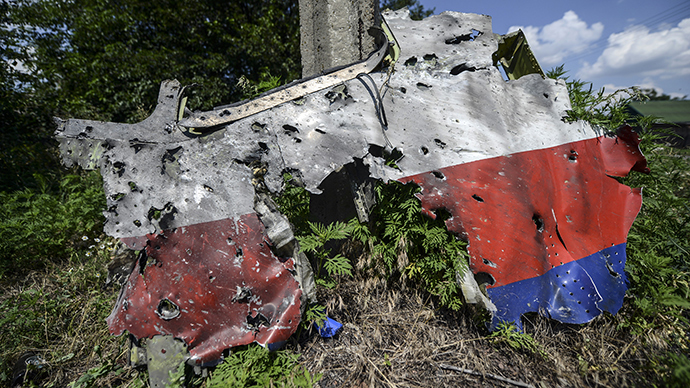'West projects Russia's Soviet past onto the situation in Ukraine'

There is no simple answer to the question why everyone is attacking and demonizing Russia, but it definitely will not lead to compromise, Professor Neil Kent, member of the Cambridge Initiative for Security Studies, told RT.
Russia’s past, when it was pilloried as a totalitarian state, is still projected onto the present day, because people do not have an accurate understanding of what is going on, Kent said.
RT:When flight MH17 crashed, leaders in the US and the EU immediately pinned the blame on Russia. Is the media being encouraged by them?
Neil Kent: I would rather say that the media has its own agenda, to have a good story and have a priori convictions. For example, I noticed in the last few days that one of the Pussy Riot women was writing about this whole tragedy. To have Pussy Riot write a cool analysis of such an event seems to me like having Assange write about the Swedish legal system. That sort of polemic is not what is needed to understand what has happened in such a tragedy.
RT:A couple of days ago, the US State Department said the American military would provide conclusive evidence. How decisive is the intelligence made public so far?
NK: To say it in one word, inconclusive. I did jury duty in England a while ago and it was a case of someone stealing a rubber duck. It took a fortnight to get to the bottom of that. If it took two weeks to get to the bottom of someone stealing a rubber duck from a garden center how much longer would it take to get to the bottom of such a difficult situation? I think, having conclusions on the basis of films, videos, recordings, and deciding virtually immediately who the culprit is, is not the way to go about it. At Cambridge where I am based cool analysis is considered extremely important.
RT:Most of the accusations target Russia and Vladimir Putin. Why do news outlets think Moscow has such close ties to the militias in east Ukraine?
NK: I think there are certainly those in the media who want sanctions, and there are those in government who want sanctions. One of the things that intrigued me is that amongst the old traditional English establishment, centered around St James's in London, pillar of industry and land owners, people have come up to me rather sheepishly saying why is everyone attacking and demonizing Russia? And I do not have a simple answer to that. I do not see why it is happening because I do not see that as a useful way of analyzing the situation or achieving happy results and compromises for everybody concerned.
RT:In your opinion, could all this media hype help those in the EU pushing for the imposition of economic sanctions on Russia?
NK: Unfortunately in England there is what one of our Cambridge group calls "historic attention span deficit syndrome", and by that they mean that people don't have an accurate historical background to the whole situation. And since, for quite a long time Russia (in the Soviet period and even tsarist phase) has been pilloried as being an absolute dictatorial, vicious, totalitarian system. I think it is projected onto the present day, because people do not have an accurate and objective understanding of what is going on. There is not often a cool analysis of the situation in Russia on the ground or indeed in Ukraine, in Crimea.
RT:Why do you think Kiev's military operation in eastern Ukraine is being praised by Western leaders and the media?
NK: One has to look back at the Orange revolution in Ukraine, the so-called Arab Springs all over the Arab world, none of which turned out to be a spring, they'd turned out to bring a new winter with the elimination of Christians from large swathes of the Middle East, and death and destruction. Part of that is caused by ignorance about the situation and an incredible naivety. People would like to imagine that in foreign cultures, particularly in England and America, people have the same values and react the same way they do at home. And they somehow project there the new American Revolution, the tide that happened in 1774 in the US as a result of a coup. This wonderful new idyllic state will rise up from the ground and lambs and the lions will live in harmony ever after. And I think it is sad, because I will never forget how at the beginning of this situation I heard the Patriarch of the Russian Orthodox Church saying to people: "Please, everyone, all my flock, in Ukraine, in Russia, wherever you are, do not take up arms against one another, sit down and speak to one another and negotiate." Somehow a lot of people in England, in the US, but I do not think it is everywhere in the EU like that, somehow had the naive idea that these coups would take over everywhere, only good people, moral people would be involved, there would not be neo-Nazis, there would not be horrid totalitarian people. And unfortunately that has turned out.
The statements, views and opinions expressed in this column are solely those of the author and do not necessarily represent those of RT.












